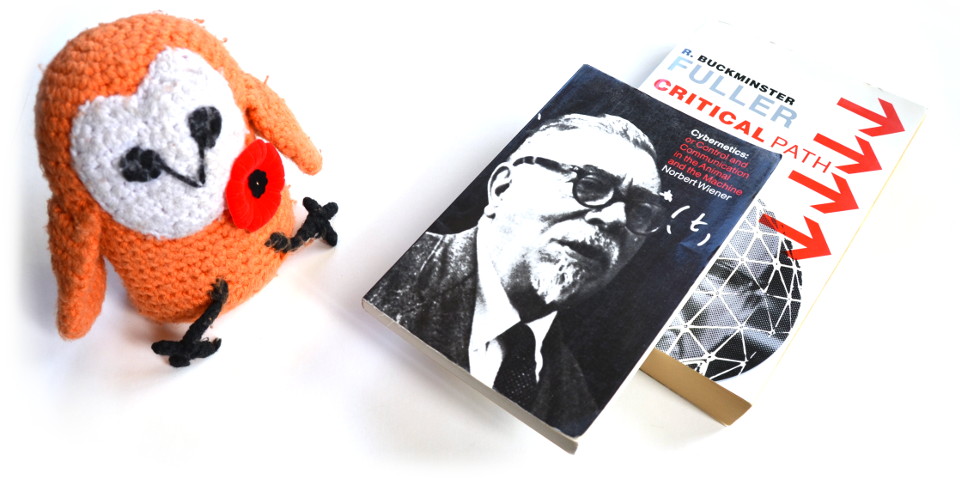On the 11th hour of the 11th day of the 11th month, in Canada and in many nations around the world, a minute of silence is observed. Remembrance Day, as we call it here, is special this year as it marks the 100th anniversary of the signing of the armistice of the First World War, and this profound occasion reminded us of the wise words of two exceptional thinkers and innovators of the previous century, which are well worth sharing.
After the Second World War, which followed the First a mere generation later and concluded with the advent of atomic weapons, Norbert Wiener wrote in the Introduction of his seminal book, Cybernetics:
Those of us who have contributed to the new science of cybernetics thus stand in a moral position which is, to say the least, not very comfortable. We have contributed to the initiation of a new science which, as I have said, embraces technical developments with great possibilities for good and for evil. We can only hand it over into the world that exists about us, and this is the world of Belsen and Hiroshima. We do not even have the choice of suppressing these new technical developments. They belong to the age, and the most any of us can do by suppression is to put is to put the development of the subject into the hands of the most irresponsible and most venal of our engineers. The best we can do is to see that a large public understands the trend and the bearing of the present work, and to confine our personal efforts to those fields, such as physiology and psychology, most remote from war and exploitation. As we have seen, there are those who hope that the good of a better understanding of man and society which is offered by this new field of work may anticipate and outweigh the incidental contribution we are making to the concentration of power (which is always concentrated, by its very conditions of existence, in the hands of the most unscrupulous). I write in 1947, and I am compelled to say that it is a very slight hope.
It is not difficult to replace the word cybernetics with artificial intelligence or the Internet of Things and appreciate the relevance of these words in a modern context. Fortunately, Wiener’s “very slight hope” proved sufficient for humanity to avoid nuclear war, while continuing to advance technology at a relentless pace. To this point, Buckminster Fuller wrote in 1980 in the Introduction of his final work, Critical Path:
History shows that, only when the leaders of the world’s great power structures have become convinced that their power structures are in danger of being destroyed, have the gargantuanly large, adequate funds been appropriated for accomplishing the necessary epoch-opening new technologies. It took preparation for World War III to make available the funds that have given us computers, transistors, rockets and satellites to realistically explore the Universe.
The lessons of history and the words of Wiener and Fuller remind us that great threats to power have brought about great technological progress, but unfortunately, they have also brought about the devastating wars upon which today we reflect and remember. Should you find yourself like Wiener, able only to muster a “very slight hope” about the future, perhaps Jeremy Rifkin‘s contemporary views on the Third Industrial Revolution can elevate such sentiments to a feeling of “guarded optimism”.
Let us not forget that we have history as a guide towards a peaceful and perpetual advancement of humanity, limited only by our collective capacity for technological innovation.
